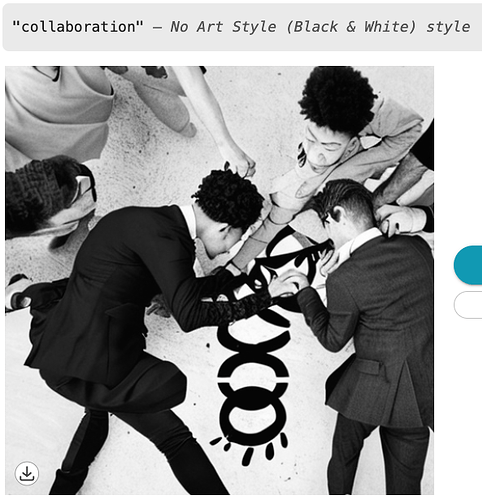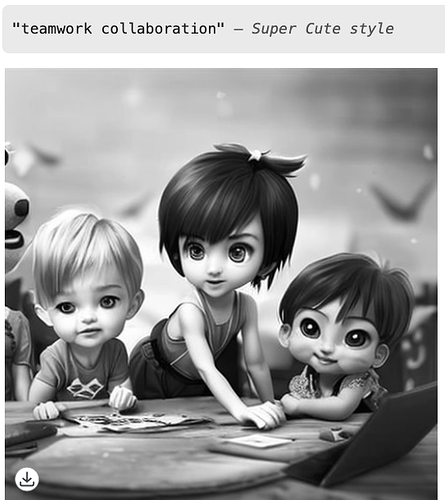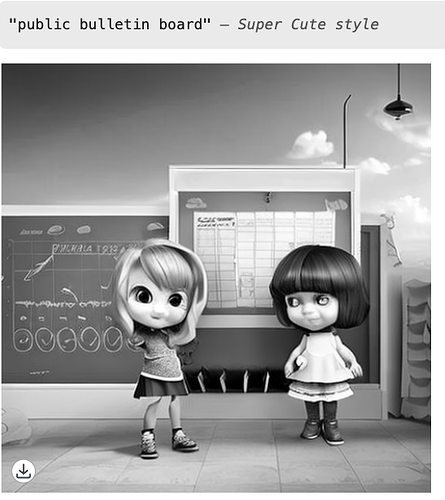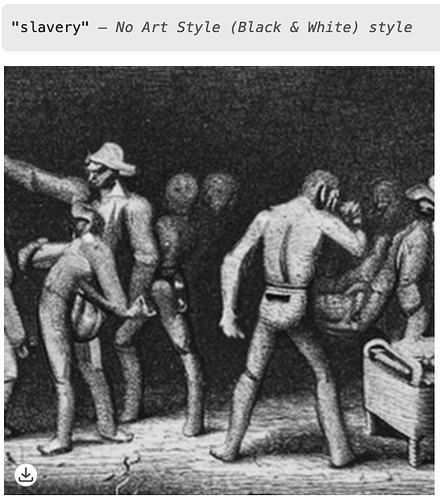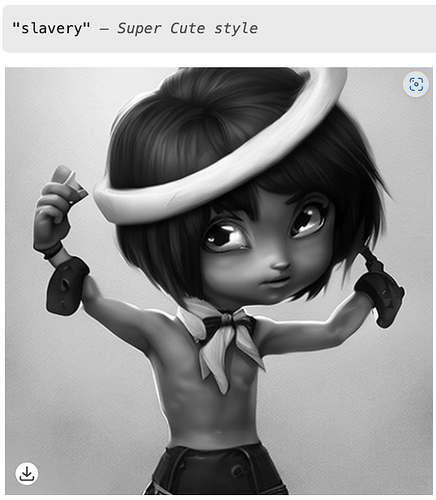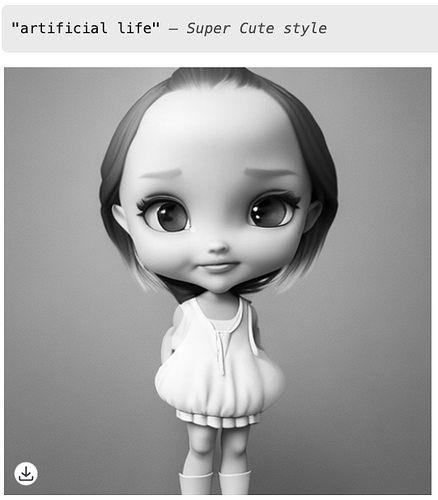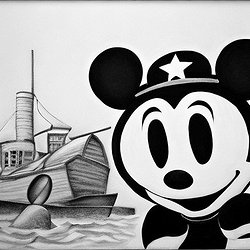This! We have a grand history of intentional theft. “I can force this technology do evil” is not the same as “this technology is evil”
Food for thought, maybe people are afraid of the wrong things here… from an interview with Ted Chiang:
I tend to think that most fears about A.I. are best understood as fears about capitalism. And I think that this is actually true of most fears of technology, too. Most of our fears or anxieties about technology are best understood as fears or anxiety about how capitalism will use technology against us. And technology and capitalism have been so closely intertwined that it’s hard to distinguish the two.
This feels very accurate to me.
Source:
I also draw a distinction between fear of something and whether that something should be allowed to exist.
For example, I am at least a little afraid that advances in AI will hurt my chances of continuing to be employed as a well-compensated software developer. Maybe the AI will learn to do my job, or maybe the things I’m good at will no longer be as valuable. If that happens, I will be worse off and I will, in the words of the Grumpy Old Man, not like things now compared to the way they used to be. But my self-interest is no more a justification for stasis than the need to protect the buggy-whip industry prevented development of the automobile.
I’ve been on this planet for long enough to have had the world change out from under me a few times. It’s an upsetting and terrifying experience. But we’re not going to go back to living in a world where computers can’t generate pictures and music and text and speech. There are some extremely important concerns about how and what these tools are used for, and just like every other tool, there need to be social, moral, ethical, and legal frameworks that evolve out of these discussions (and probably a few tragedies that will occur on the way). The folks who are raising and exploring those concerns are productive and crucial. While I empathize with the gatekeepers who are shouting in panic at the prospect of their skills being commoditized, unfortunately it’s happening whether you like it or not.
Again the deep issue is ownership. It was/is not a problem that hard labor was taken over by robots. The problem was ownership and control of the results. Given the authoritarian drift and concentration of power this is not working out well but what if you could buy a robot as easily as a Glowforge and all the monopolies were instead dispersed to have a real open market to sell the results much as computers were for a while that anyone could by the parts and sell the resulting computer? Perhaps even the hypothetical 3d printer of strong metallic results for the price and availability of a Glowforge?
Currently the monopoly of whatever would only buy from themselves. This was technically illegal within my lifetime but never enforced and washed away. It would be a much better world if that really happened, but the mechanism to getting there is not available. So what would be good and right is not what is likely to happen, and our descendants will envy will their forefathers as has not happened for a thousand years but that will not change what is good and right.
It is quite literally stealing things and morphing them. There’s a big difference between taking inspiration from another artist’s style and taking actual brush strokes, faces, etc. I have mixed feelings about AI art, which I won’t bore anyone with here, but I think it’s fun to play with.
Yeah…
What does this remind me of…? Oh right:
It really is an interesting thing how quickly concerns about AI go straight to the bin if you take capitalistic economics out of the mix.
Which it does not do. Even the spirals of Van Gogh’s “Starry Night” are impressions and not copies in the results.
Even with actual people I was experimenting with Trump and De Santos and it was very interesting. Catching what was trump was much easier as so much is unique to him, while DeSantos’ face was hard as there are much fewer distinctive features.
And so it is with everything. Nothing is a replica but what the AI has decided is important, and that is very often a weird choice.
More to the point I can ask for whole pieces of what I have in mind say a mountain background or a forest glen, and then ask for a deer and put the deer in the forest glen myself.
I suspect this is because here are far more images of one subject versus the other. The model just has a better idea of what one person looks like over the other.
As I was a bit more subtle about the point, capitalism and pretend capitalism cover a very wide range of results, from actually socialized effort to make life better to the feral - “dog eat dog” kleptocracy where nobody is secure. Like a socialized dog knows better not to carp on the rug, and the feral dog feels his freedom is being limited, a socialized capitalism could even be actually as communist as the Mondragon company or as feral as Enron (Ps. Mondragon has worked well for many years while it was Enron that failed spectacularly)
There is another position which gets very little discussion. In the case of (non-tangible) art, the extent of your ownership of that creation is specifically limited to the claim that you created it, and that it is your original work. Once you upload or otherwise distribute it to a public sphere, you are transferring (sharing) a facsimile of that creation, which then becomes de facto public property.
People can still pay you for copies to support your work - visual or written. If someone copies it and claims it as their original work, then that’s fraud and we have very well defined laws against that. Yes, this philosophy is a violation of a 120+ year precedent in Copyright law, may be grossly unfair, and there’s are a million reasons why it just plain sucks.
However, this is argued all the time over what someone says ‘online’. If you post something, you can’t take it back. Those words becomes public and you have no control over how they are used or where they are shown. You also have no recourse (ultimately) to have them removed from said public sphere. Which intrinsically makes sense - You chose to ‘share’ it with the public, now it belongs to everyone.
I understand this seems antithetical to individual rights and freedom, and not a popular opinion. But we also once ‘owned’ other human beings, and came to understand that’s an incorrect philosophy, regardless of the legality and case law of the time. These issues around art and creativity will continue to work their way through the human collective discussion.
We don’t legally consider our children ‘property’. And eventually we’ll ‘create’ an artificial life form. What then… We may very well come to a different understanding of ownership and, inadvertently, that of creativity as well.
HL
I’m pretty sure this is not legally accurate. A few references:
https://www.lib.sfu.ca/help/academic-integrity/copyright/internet-public-domain
this is a philosophical point, not really directly relevant to a legal discussion. you can disagree with what copyright law says at the moment, but that doesn’t make it a legally valid argument. it’s just a philosophical point of view that differs with actual law. it’s a very similar argument people used to (and still do, to a lesser extent) make about whether it’s legal to “share” music or software that wasn’t given freely by the original author/copyright holder.
maybe some day the law will evolve and agree with you, but i don’t think it would be any time in the near future.
mouse soup.
it is a wonder it wasn’t a computer mouse. or perhaps you just need to change the style.
fun examples.
they were mostly peaceful. ![]()
“There is another position which gets very little discussion.”
I didn’t say it was my position, let alone had legal standing, it’s just a different way of thinking about it. Which I enjoy exploring, in life and in Art. And I believe is healthy to do, so long as it is mostly peaceful, and mostly legal. ![]()
HL
fair enough. i just don’t think it’s a position that will hold much value legally in the long run, if ever. it basically devalues incentive for creativity in a capitalist(ish) society. so unless we figure a way to evolve out of capitalism (without devolving into authoritarianism or anarchy), i’m doubt we’ll move in that direction.
Chairman Maouse?
Or early ‘Moussolini’, pick your poison. I have an AI for “Moussolini - Super Cute Style” But I’m sure it violates the Magic Canvas TOU.
Mousey tongue? Or the current case that I can only see as number 11.
Looking it up Steamboat Willy has aged into public domain
We don’t seem to have the same understanding of the language being used because if I take your artwork and run a “sketch” filter over it, I think that’s copying and not using “an impression.” To me, an impression is mimicking a color palette or being inspired by the theme. Maybe even copying your overall style. And just because there are examples of works that are altered enough that we could all agree they are transformative doesn’t mean that there aren’t also examples of things that are very clear copies.
Absolutely, however, I see the line as mostly gray gradient and much honest discussion of where the gray gets too dark to tolerate and only the extreme cases purely white or black.
An Author I knew felt that loaning a book you bought for another to read or selling the book or giving it away was stealing it from him.

